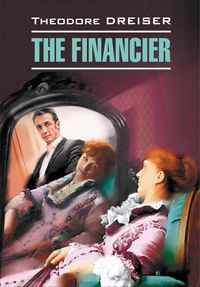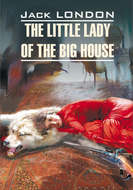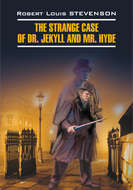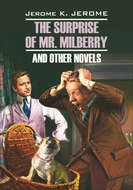Kitabı oku: «The Financier / Финансист. Книга для чтения на английском языке», sayfa 4
Chapter VII
In the meantime, his interest in Mrs. Semple had been secretly and strangely growing. When he received an invitation to call at the Semple home, he accepted with a great deal of pleasure. Their house was located not so very far from his own, on North Front Street, in the neighborhood of what is now known as No. 956. It had, in summer, quite a wealth of green leaves and vines. The little side porch which ornamented its south wall commanded a charming view of the river, and all the windows and doors were topped with lunettes of small-paned glass. The interior of the house was not as pleasing ashe would have had it. Artistic impressiveness, as to the furniture at least, was wanting, although it was new and good. The pictures were – well, simply pictures. There were no books to speak of – the Bible, a few current novels, some of the more significant histories, and a collection of antiquated odds and ends in the shape of books39 inherited from relatives. The china was good – of a delicate pattern. The carpets and wall-paper were too high in key40. So it went. Still, the personality of Lillian Semple was worth something, for she was really pleasing to look upon, making a picture wherever she stood or sat.
There were no children – a dispensation of sex conditions which had nothing to do with her, for she longed to have them. She was without any notable experience in social life, except such as had come to the Wiggin family, of which she was a member – relatives and a few neighborhood friends visiting. Lillian Wiggin, that was her maiden name – had two brothers and one sister, all living in Philadelphia and all married at this time. They thought she had done very well in her marriage.
It could not be said that she had wildly loved Mr. Semple at any time. Although she had cheerfully married him, he was not the kind of man who could arouse a notable passion in any woman. He was practical, methodic, orderly. His shoe store was a good one – well-stocked with styles reflecting the current tastes and a model of cleanliness and what one might term pleasing brightness. He loved to talk, when he talked at all, of shoe manufacturing, the development of lasts and styles. The ready-made shoe – machine-made to a certain extent – was just coming into its own slowly, and outside of these, supplies of which he kept, he employed bench-making shoemakers41, satisfying his customers with personal measurements and making the shoes to order.
Mrs. Semple read a little – not much. She had a habit of sitting and apparently brooding reflectively at times, but it was not based on any deep thought. She had that curious beauty of body, though, that made her somewhat like a figure on an antique vase, or out of a Greek chorus. It was in this light, unquestionably, that Cowperwood saw her, for from the beginning he could not keep his eyes off her. In a way, she was aware of this but she did not attach any significance to it. Thoroughly conventional, satisfied now that her life was bound permanently with that of her husband, she had settled down to a staid and quiet existence.
At first, when Frank called, she did not have much to say. She was gracious, but the burden of conversation fell on her husband. Cowperwood watched the varying expression of her face from time to time, and if she had been at all psychic she must have felt something. Fortunately she was not. Semple talked to him pleasantly, because in the first place Frank was becoming financially significant, was suave and ingratiating, and in the next place he was anxious to get richer and somehow Frank represented progress to him in that line. One spring evening they sat on the porch and talked – nothing very important – slavery, street-cars, the panic – it was on then, that of 185742 – the development of the West. Mr. Semple wanted to know all about the stock exchange. In return Frank asked about the shoe business, though he really did not care. All the while, inoffensively, he watched Mrs. Semple. Her manner, hethought, was soothing, attractive, delightful. She served tea and cake for them. They went inside after a time to avoid the mosquitoes. She played the piano. At ten o’clock he left.
Thereafter, for a year or so, Cowperwood bought his shoes of Mr. Semple. Occasionally also he stopped in the Chestnut Streetstore to exchange the time of the day43. Semple asked his opinion as to the advisability of buying some shares in the Fifth and Sixth Street line, which, having secured a franchise, was creating great excitement. Cowperwood gave him his best judgment. It was sure to be profitable. He himself had purchased one hundred shares at five dollars a share, and urged Semple to do so. But he was not interested in him personally. He liked Mrs. Semple, though he did not see her very often.
About a year later, Mr. Semple died. It was an untimely death, one of those fortuitous and in a way insignificant episodes which are, nevertheless, dramatic in a dull way to those most concerned. He was seized with a cold in the chest late in the fall – one of those seizures ordinarily attributed to wet feet or to going out on a damp day without an overcoat – and had insisted on going to business when Mrs. Semple urged him to stay at home and recuperate. He was in his way a very determined person, not obstreperously so, but quietly and under the surface. Business was a great urge. He saw himself soon to be worth about fifty thousand dollars. Then this cold – nine more days of pneumonia – and he was dead. The shoe store was closed for a few days; the house was full of sympathetic friends and church people. There was a funeral, with burial service in the Callowhill Presbyterian Church, to which they belonged, and then he was buried. Mrs. Semple cried bitterly. The shock of death affected her greatly and left her for a time in a depressed state. A brother of hers, David Wiggin, undertook for the time being to run the shoe business for her. There was no will, but in the final adjustment, which included the sale of the shoe business, there being no desire on anybody’s part to contest her right to all the property, she received over eighteen thousand dollars. She continued to reside in the Front Street house, and was considered a charming and interesting widow.
Throughout this procedure young Cowperwood, only twenty years of age, was quietly manifest44. He called during the illness. He attended the funeral. He helped her brother, David Wiggin, dispose of the shoe business. He called once or twice after the funeral, then stayed away for a considerable time. In five months he reappeared, and thereafter he was a caller at stated intervals – periods of a week or ten days.
Again, it would be hard to say what he saw in Semple. Her prettiness, wax-like in its quality, fascinated him; her indifference aroused perhaps his combative soul. He could not have explained why, but he wanted her in an urgent, passionate way. He could not think of her reasonably, and he did not talk of her much to any one. His family knew that he went to see her, but there had grown up in the Cowperwood family a deep respect for the mental force of Frank. He was genial, cheerful, gay at most times, without being talkative, and he was decidedly successful. Everybody knew he was making money now. His salary was fifty dollars a week, and he was certain soon to get more. Some lots of his in West Philadelphia, bought three years before, had increased notably in value. His street-car holdings, augmented by still additional lots of fifty and one hundred and one hundred and fifty shares in new lines incorporated, were slowly rising, in spite of hard times, from the initiative five dollars in each case to ten, fifteen, and twenty-five dollars a share – all destined to go to par. He was liked in the financial district and he was sure that he had a successful future. Because of his analysis of the brokerage situation he had come to the conclusion that he did not want to be a stock gambler. Instead, he was considering the matter of engaging in bill-brokering, a business which he had observed to be very profitable and which involved no risk as long as one had capital. Through his work and his father’s connections he had met many people – merchants, bankers, traders. He could get their business, or a part of it, he knew. People in Drexel & Co. and Clark & Co. were friendly to him. Jay Cooke, a rising banking personality, was a personal friend of his.
Meanwhile he called on Mrs. Semple, and the more he called the better he liked her. There was no exchange of brilliant ideas between them; but he had a way of being comforting and social when he wished. He advised her about her business affairs in so intelligent a way that even her relatives approved of it. She came to like him, because he was so considerate, quiet, reassuring, and so ready to explain over and over until everything was quite plain to her. She could see that he was looking on her affairs quite as if they were his own, trying to make them safe and secure.
“You’re so very kind, Frank,” she said to him, one night. “I’m awfully grateful. I don’t know what I would have done if it hadn’t been for you.”
She looked at his handsome face, which was turned to hers, with childlike simplicity.
“Not at all. Not at all. I want to do it. I wouldn’t have been happy if I couldn’t.”
His eyes had a peculiar, subtle ray in them – not a gleam. She felt warm toward him, sympathetic, quite satisfied that she could lean on him.
“Well, I am very grateful just the same. You’ve been so good. Come out Sunday again, if you want to, or any evening. I’ll be home.”
It was while he was calling on her in this way that his Uncle Seneca died in Cuba and left him fifteen thousand dollars. This money made him worth nearly twenty-five thousand dollars in his own right, and he knew exactly what to do with it. A panic had come since Mr. Semple had died, which had illustrated to him very clearly what an uncertain thing the brokerage business was. There was really a severe business depression. Money was so scarce that it could fairly be said not to exist at all. Capital, frightened by uncertain trade and money conditions, everywhere, retired to its hiding-places in banks, vaults, teakettles, and stockings. The country seemed to be going to the dogs.45 War with the South or secession was vaguely looming up in the distance. The temper of the whole nation was nervous. People dumped their holdings on the market in order to get money. Tighe discharged three of his clerks. He cut down his expenses in every possible way, and used up all his private savings to protect his private holdings. He mortgaged his house, his land holdings – everything; and in many instances young Cowperwood was his intermediary, carrying blocks of shares to different banks to get what he could on them.
“See if your father’s bank won’t loan me fifteen thousand on these,” he said to Frank, one day, producing a bundle of Philadelphia & Wilmington shares. Frank had heard his father speak of them in times past as excellent.
“They ought to be good,” the elder Cowperwood said, dubiously, when shown the package of securities. “At any other time they would be. But money is so tight. We find it awfully hard these days to meet our own obligations. I’ll talk to Mr. Kugel.” Mr. Kugel was the president.
There was a long conversation – a long wait. His father came back to say it was doubtful whether they could make the loan. Eight per cent., then being secured for money, was a small rate of interest, considering its need. For ten per cent. Mr. Kugel might make a call-loan. Frank went back to his employer, whose commercial choler rose at the report.
“For Heaven’s sake, is there no money at all in the town?” he demanded, contentiously. “Why, the interest they want is ruinous! I can’t stand that. Well, take ’em back and bring me the money. Good God, this’ll never do at all, at all!”
Frank went back. “He’ll pay ten per cent.,” he said, quietly. Tighe was credited with a deposit of fifteen thousand dollars, with privilege to draw against it at once.46 He made out a check for the total fifteen thousand at once to the Girard National Bank to cover a shrinkage there. So it went.
During all these days young Cowperwood was following these financial complications with interest. He was not disturbed by the cause of slavery, or the talk of secession, or the general progress or decline of the country, except in so far asit affected his immediate interests. He longed to become astable financier; but, now that he saw the inside of the brokerage business, he was not so sure that he wanted to stay in it. Gambling in stocks, according to conditions produced by this panic, seemed very hazardous. A number of brokers failed. He saw them rush in to Tighe with anguished faces and ask that certain trades be canceled. Their very homes were in danger, they said. They would be wiped out, their wives and children put out on the street.
This panic, incidentally, only made Frank more certain as to what he really wanted to do – now that he had this free money, he would go into business for himself. Even Tighe’s offer of a minor partnership failed to tempt him.
“I think you have a nice business,” he explained, in refusing, “but I want to get in the note-brokerage business for myself. I don’t trust this stock game. I’d rather have a little business of my own than all the floor work in this world.”
“But you’re pretty young, Frank,” argued his employer. “You have lots of time to work for yourself.” In the end he parted friends with both Tighe and Rivers. “That’s a smart young fellow,” observed Tighe, ruefully.
“He’ll make his mark47,” rejoined Rivers. “He’s the shrewdest boy of his age I ever saw.”
Chapter VIII
Cowperwood’s world at this time was of roseate hue. He was in love and had money of his own to start his new business venture. He could take his street-car stocks, which were steadily increasing in value, and raise seventy per cent. of their market value. He could put a mortgage on his lots and get money there, if necessary. He had established financial relations with the Girard National Bank – President Davison there having taken a fancy to him – and he proposed to borrow from that institution some day. All he wanted was suitable investments – things in which he could realize surely, quickly. He saw fine prospective profits in the street-car lines, which were rapidly developing into local ramifications.
He purchased a horse and buggy about this time – the most attractive-looking animal and vehicle he could find – the combination cost him five hundred dollars – and invited Mrs. Semple to drive with him. She refused at first, but later consented. He had told her of his success, his prospects, his windfall of fifteen thousand dollars, his intention of going into the note-brokerage business. She knew his father was likely to succeed to the position of vice-president in the Third National Bank, and she liked the Cowperwoods. Now she began to realize that there was something more than mere friendship here. This erstwhile boy was a man, and he was calling on her. It was almost ridiculous in the face of things – her seniority, her widowhood, her placid, retiring disposition – but the sheer, quiet, determined force of this young man made it plain that he was not to be balked by her sense of convention.
Cowperwood did not delude himself with any noble theories of conduct in regard to her. She was beautiful, with a mental and physical lure for him that was irresistible, and that was all he desired to know. No other woman was holding him like that. It never occurred to him that he could not or should not like other women at the same time. There was a great deal of palaver about the sanctity of the home. It rolled off his mental sphere like water off the feathers of a duck. He was not eager for her money, though he was well aware of it. He felt that he could use it to her advantage. He wanted her physically. He felt a keen, primitive interest in the children they would have. He wanted to find out if he could make her love him vigorously and could rout out the memory of her former life. Strange ambition. Strange perversion, one might almost say.
In spite of her fears and her uncertainty, Lillian Semple accepted his attentions and interest because, equally in spite of herself, she was drawn to him. One night, when she was going to bed, she stopped in front of her dressing table and looked at her face and her bare neck and arms. They were very pretty. A subtle something came over her as she surveyed her long, peculiarly shaded hair. She thought of young Cowperwood, and then was chilled and shamed by the vision of the late Mr. Semple and the force and quality of public opinion.
“Why do you come to see me so often?” she asked him when he called the following evening.
“Oh, don’t you know?” he replied, looking at her in an interpretive way.
“No.”
“Sure you don’t?”
“Well, I know you liked Mr. Semple, and I always thought you liked me as his wife. He’s gone, though, now.”
“And you’re here,” he replied.
“And I’m here?”
“Yes. I like you. I like to be with you. Don’t you like me that way?”
“Why, I’ve never thought of it. You’re so much younger. I’m five years older than you are.”
“In years,” he said, “certainly. That’s nothing. I’m fifteen years older than you are in other ways. I know more about life in some ways than you can ever hope to learn – don’t you think so?” he added, softly, persuasively.
“Well, that’s true. But I know a lot of things you don’t know.” She laughed softly, showing her pretty teeth.
It was evening. They were on the side porch. The river was before them.
“Yes, but that’s only because you’re a woman. A man can’t hope to get a woman’s point of view exactly. But I’m talking about practical affairs of this world. You’re not as old that way as I am.”
“Well, what of it?”
“Nothing. You asked why I came to see you. That’s why. Partly.”
He relapsed into silence and stared at the water.
She looked at him. His handsome body, slowly broadening, was nearly full grown. His face, because of its full, clear, big, inscrutable eyes, had an expression which was almost babyish. She could not have guessed the depths it veiled. His cheeks were pink, his hands not large, but sinewy and strong. Her pale, uncertain, lymphatic body extracted a form of dynamic energy from him even at this range.
“I don’t think you ought to come to see me so often. People won’t think well of it.” She ventured to take a distant, matronly air – the air she had originally held toward him.
“People,” he said, “don’t worry about people. People think what you want them to think. I wish you wouldn’t take that distant air toward me.”
“Why?”
“Because I like you.”
“But you mustn’t like me. It’s wrong. I can’t ever marry you. You’re too young. I’m too old.”
“Don’t say that!” he said, imperiously. “There’s nothing to it. I want you to marry me. You know I do. Now, when will it be?”
“Why, how silly! I never heard of such a thing!” she exclaimed. “It will never be, Frank. It can’t be!”
“Why can’t it?” he asked.
“Because – well, because I’m older. People would think it strange. I’m not long enough free.”
“Oh, long enough nothing!” he exclaimed, irritably. “That’s the one thing I have against you – you are so worried about what people think. They don’t make your life. They certainly don’t make mine. Think of yourself first. You have your own life to make. Are you going to let what other people think stand in the way of what you want to do?”
“But I don’t want to,” she smiled.
He arose and came over to her, looking into her eyes.
“Well?” she asked, nervously, quizzically.
He merely looked at her.
“Well?” she queried, more flustered.
He stooped down to take her arms, but she got up.
“Now you must not come near me,” she pleaded, determinedly. “I’ll go in the house, and I’ll not let you come any more. It’s terrible! You’re silly! You mustn’t interest yourself inme.”
She did show a good deal of determination, and he desisted. But for the time being only.48 He called again and again. Then one night, when they had gone inside because of the mosquitoes, and when she had insisted that he must stop coming to see her, that his attentions were noticeable to others, and that she would be disgraced, he caught her, under desperate protest, in his arms.
“Now, see here!” she exclaimed. “I told you! It’s silly! You mustn’t kiss me! How dare you! Oh! oh! oh! – ”
She broke away and ran up the near-by stairway to her room. Cowperwood followed her swiftly. As she pushed the door to he forced it open and recaptured her. He lifted her bodily from her feet and held her crosswise, lying in his arms.
“Oh, how could you!” she exclaimed. “I will never speak to you any more. I will never let you come here any more if you don’t put me down this minute. Put me down!”
“I’ll put you down, sweet,” he said. “I’ll take you down,” at the same time pulling her face to him and kissing her. He was very much aroused, excited.
While she was twisting and protesting, he carried her down the stairs again into the living-room, and seated himself in the great armchair, still holding her tight in his arms.
“Oh!” she sighed, falling limp on his shoulder when he refused to let her go. Then, because of the set determination of his face, some intense pull in him, she smiled. “How would I ever explain if I did marry you?” she asked, weakly. “Your father! Your mother!”
“You don’t need to explain. I’ll do that. And you needn’t worry about my family. They won’t care.”
“But mine,” she recoiled.
“Don’t worry about yours. I’m not marrying your family. I’m marrying you. We have independent means.49”
She relapsed into additional protests; but he kissed her the more. There was a deadly persuasion to his caresses. Mr. Semple had never displayed any such fire. He aroused a force of feeling in her which had not previously been there. She was afraid of it and ashamed.
“Will you marry me in a month?” he asked, cheerfully, when she paused.
“You know I won’t!” she exclaimed, nervously. “The idea! Why do you ask?”
“What difference does it make? We’re going to get married eventually.”
He was thinking how attractive he could make her look in other surroundings. Neither she nor his family knew how to live.
“Well, not in a month. Wait a little while. I will marry you after a while – after you see whether you want me.”
He caught her tight. “I’ll show you,” he said.
“Please stop. You hurt me.”
“How about it? Two months?”
“Certainly not.”
“Three?”
“Well, maybe.”
“No maybe in that case. We marry.”
“But you’re only a boy.”
“Don’t worry about me. You’ll find out how much of a boy I am.”
He seemed of a sudden to open up a new world to her, and she realized that she had never really lived before. This man represented something bigger and stronger than ever her husband had dreamed of. In his young way he was terrible, irresistible.
“Well, in three months then,” she whispered, while he rocked her cozily in his arms.








